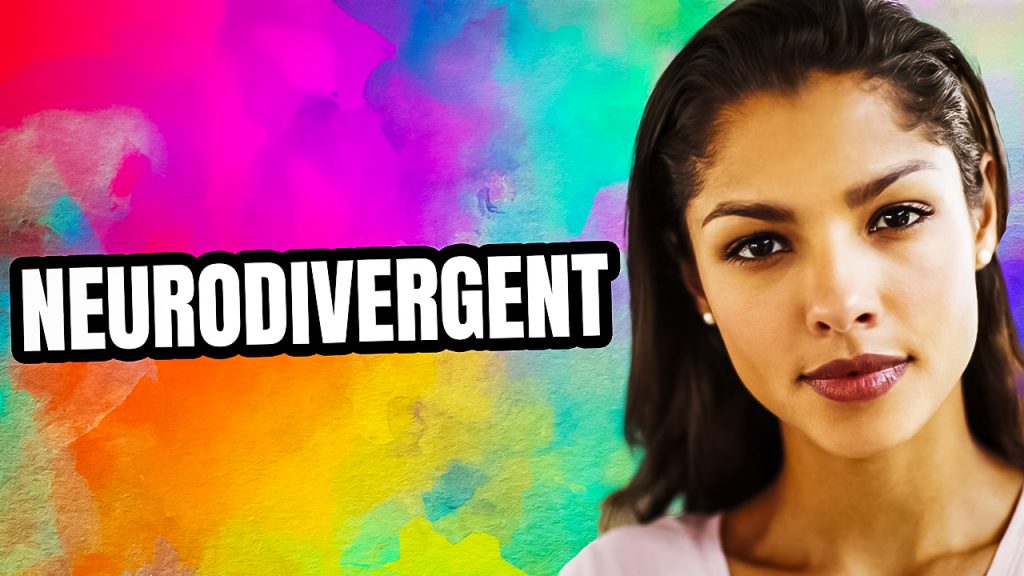
Neurodivergent is a term used to describe individuals whose neurological development and
functioning diverge from the “norm,” or typical, patterns of behavior and cognition. This can
include conditions such as autism, ADHD, dyslexia, dyspraxia, and many others. Neurodiversity
is becoming more recognized as an important aspect of human diversity, and the
neurodivergent community is advocating for greater acceptance, accommodation, and
celebration of this diversity.
One of the key principles of neurodiversity is that neurodivergent individuals are not inherently
“disordered” or “deficient,” but rather have different ways of experiencing and processing the
world around them. This perspective challenges the traditional medical model of disability, which
tends to pathologize differences and focus on curing or remedying them.
While neurodivergent individuals may face challenges and barriers in society, such as
discrimination, lack of understanding, and difficulty accessing accommodations and support,
they also have unique strengths and abilities. Many neurodivergent individuals have exceptional
talents in areas such as math, science, art, and music, and their different perspectives can lead
to innovative and creative solutions to problems.
Autism is one of the most well-known and commonly discussed neurodivergent conditions. It is
a neurodevelopmental disorder characterized by difficulties with social communication, sensory
processing, and repetitive or restricted behaviors and interests. Autism is often accompanied by
other conditions such as ADHD, anxiety, and depression.
One of the challenges of autism is that it can present in a wide range of ways, from mild to
severe, and with different combinations of symptoms. This can make it difficult for neurotypical
individuals to understand and relate to autistic people, and can also lead to misdiagnosis or
underdiagnosis. However, by listening to and valuing the perspectives and experiences of
autistic individuals, we can gain a greater understanding of this condition and how to better
support those who have it.
ADHD, or attention deficit hyperactivity disorder, is another common neurodivergent condition. It
is characterized by difficulty with sustained attention, hyperactivity, and impulsivity. Like autism,
ADHD can present in a variety of ways and can be accompanied by other conditions such as
anxiety and depression.
While ADHD can be challenging in certain contexts, such as school or work, it can also be a
source of creativity and energy. Many people with ADHD have a natural inclination towards
entrepreneurship and innovation, and are able to excel in fields such as sales, marketing, and
advertising. By recognizing and valuing these strengths, we can help to support and empower
individuals with ADHD.
Dyslexia is a neurodivergent condition that affects reading and writing skills. It is characterized
by difficulty with decoding and recognizing written words, and can also impact spelling and
comprehension. Dyslexia is often accompanied by other conditions such as ADHD and anxiety.
While dyslexia can present challenges in academic settings, many individuals with dyslexia are
highly intelligent and creative. They may excel in fields such as visual arts, design, or
entrepreneurship, and can bring unique perspectives to problem-solving and innovation. By
providing appropriate accommodations and support, we can help to unlock the potential of
dyslexic individuals.
Dyspraxia, also known as developmental coordination disorder, is a condition that affects motor
coordination and planning. It can impact activities such as handwriting, tying shoelaces, and
sports. Dyspraxia is often accompanied by other conditions such as ADHD and anxiety.
While dyspraxia can make certain tasks more difficult, many individuals with this condition have
exceptional talents in areas such as music, art, and computer programming. By providing
accommodations such as assistive technology and flexible schedules, we can help to support
the unique strengths of dyspraxic individuals.
It is important to note that neurodiversity encompasses a wide range of conditions beyond those
mentioned above, including Tourette syndrome, obsessive-compulsive disorder, bipolar
disorder, and schizophrenia, among others. Each of these conditions can manifest in unique
ways, and it is important to approach each individual with empathy and understanding.
The neurodiversity movement advocates for greater acceptance and accommodation of
neurodivergent individuals in all areas of society, including education, employment, healthcare,
and social relationships. This can include providing accommodations such as extra time on
tests, flexible work schedules, and sensory-friendly environments, as well as promoting
awareness and understanding of neurodiversity.
One important aspect of this movement is the recognition of the role that social and
environmental factors can play in exacerbating or alleviating the challenges faced by
neurodivergent individuals. For example, individuals with autism may struggle in noisy, crowded
environments, but may thrive in calm, quiet spaces. By creating more inclusive environments
and designing systems and structures that support neurodiversity, we can help to minimize the
negative impacts of these conditions and support the strengths and abilities of neurodivergent
individuals.
The neurodiversity movement also challenges the idea that neurodivergent individuals should
strive to “fit in” with neurotypical norms and expectations. Instead, it emphasizes the importance
of celebrating and valuing diversity, and recognizing that different perspectives and ways of
thinking can lead to greater innovation and progress. By embracing neurodiversity and valuing
the unique strengths and perspectives of neurodivergent individuals, we can create a more
inclusive and equitable society for all.
In conclusion, neurodivergent individuals are those whose neurological development and
functioning diverge from typical patterns. The neurodiversity movement challenges the idea that
neurodivergent individuals are inherently disordered or deficient, and instead recognizes their
unique strengths and abilities. By providing accommodations and support, promoting awareness
and understanding, and embracing neurodiversity, we can create a more inclusive and equitable
society for all.
This Post is Brought To You By BetterHelp